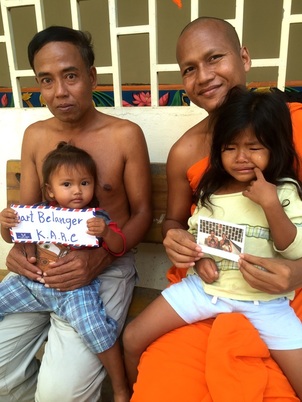
I visited the Pagoda with Siman, a wonderful tuk tuk driver and here in Phnom Penh, Cambodia. Siman does a whole lot to help his own people, all day long going to visit sick and poor kids and families he hears about, connecting them with concerned foreigners and non-profits like Kids at Risk Cambodia to try and get them some assistance like a bag of rice, some medicine, or a few Reil notes.
I’ve visited hospitals, slums, and villages far out in the provinces with Siman before, but this day, we visited a Pagoda – a temple where Buddhist monks live. But more than just a religious site, a Pagoda is a whole compound, sometimes as big as a city block, walled in and with its own schools and mini stores, its own little mini community for the devout and the poor.
Siman introduced me to a young monk, who flashed a magazine cover smile and spoke surprisingly good English, Chhun Bann.
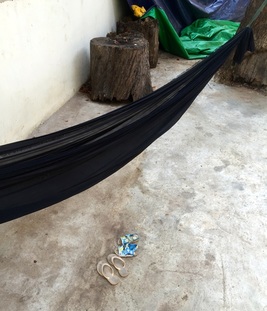
We followed him through the lanes and alleys of the Pagoda, some of them bringing us past ornate and colorful places of worship with shutters on every window and grand spired roofs, others places where young men lounged in the shade by their motos and stray dogs ran up to play.
“They usually stay over here – by this building,” Chhun explained. “They have no mother.” When we turned a corner, there was a teenager urinating against a building. He awkwardly tried to turn, hop, and zip at the same time when he saw the monk, but nature wouldn’t allow. Chhun chastised him in their language, but his words had no sharp edges.
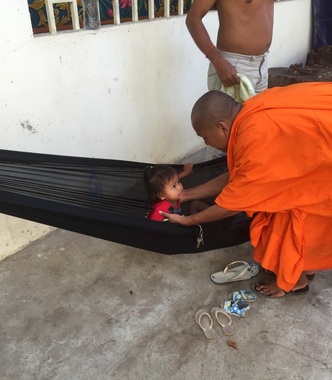
The man greeted Chhun and Siman warmly, and then proudly showed off his beautiful baby girl with wide, black eyes. But there were three to this hammock, because his five-year old daughter was still wrapped up in the hammock, completely enveloped like she was wrapped in a burrito, shirtless and with wild black hair. The monk bent down to pick her up, and she started bawling.
“She never cries like this,” he said. “She must not feel well. She usually runs right to me and sits with me, but she never cries.”
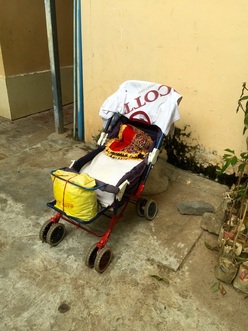
“The mother of the girls left for Thailand and never came back,” Chhun said. “She went for a job but maybe she met another man. That is what his friend told him.” Abandoned with two baby daughters to care for and no money, the man was reduced to homelessness – but refused to abandon his daughters. He had to watch them and take care of them day and night, trying to scrounge up food and keeping them cool and safe, so he could not go out and try to find even humble work all day.
The father explained to Chhun, who translated to me, that his oldest daughter was sick, so they’d spent the whole previous day at the public hospital, waiting for her to be seen. I couldn’t tell if it was her ears or what was ailing the girls, With no money, it was a tough proposition, but finally they gave him a few pills for her, which he proudly displayed in a little plastic square.
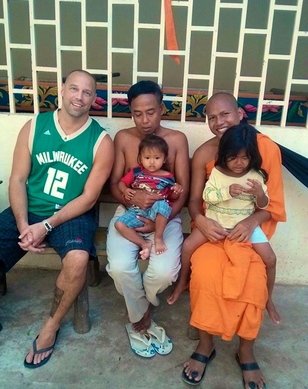
I gave them the photograph, showing them to hold it by the bottom frame as the image of the battered but not broken family slowly seeped into existence. The monk and then the father and then his baby daughter started shaking the photograph – like you used to do with a Polaroid camera, as the song goes. I didn’t have the heart to tell them that it doesn’t help develop the film with this one because it was too cute of a scene.
“This one wants to learn English,” Chhun told me, “but of course for the poor people that is just a dream to go to school.”
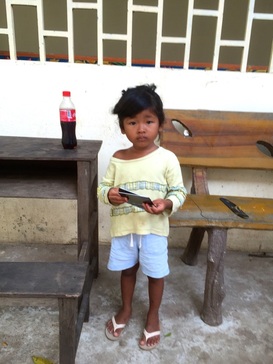
“But he is worried. They are young now, but with this oldest, maybe in about three years, he will have some big problems. Maybe there are drugs or gangsters who try to take her, you understand?” he said.
I nodded my head and told him that I did. The girl sat on the monk’s lap and stopped crying now, though her wild hair still refused to be tamed. She cooed and chewed on her finger as he took out a comb and brushed her hair, then wrapped it back elegantly.
“Look – she stopped crying,” he said.
“Let’s take another photo for them, them,” I said.
So they lined up on the bench again and I took another shot, counting one-two-three in Khmer but messing up my numbers, as usual. The girl didn’t smile, but at least this time she didn’t cry, and wanted to hold and shake the photo once it came out.
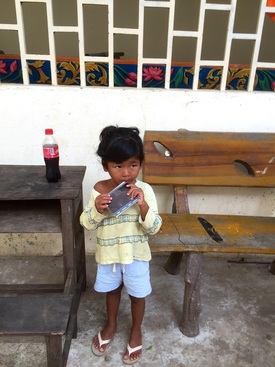
The father went and got his daughter a Coca Cola, which she eagerly drank in between playing with the monk’s cellphone.
“Which picture do you like better?” Chhun asked her in Khmer, displaying both in front of her. She pointed to one coyly.
“No, but look, you are not crying in this one,” he said. After careful consideration, she pointed to the newest photo.
“I really hope she can go to school,” Chhun said, looking up at me, the daughter who’s whole family slept in a hammock at the Pagoda chewing on the edge of the only photograph they’d ever owned. “Without that…well, I just really hope she can.”
- Norm :-)
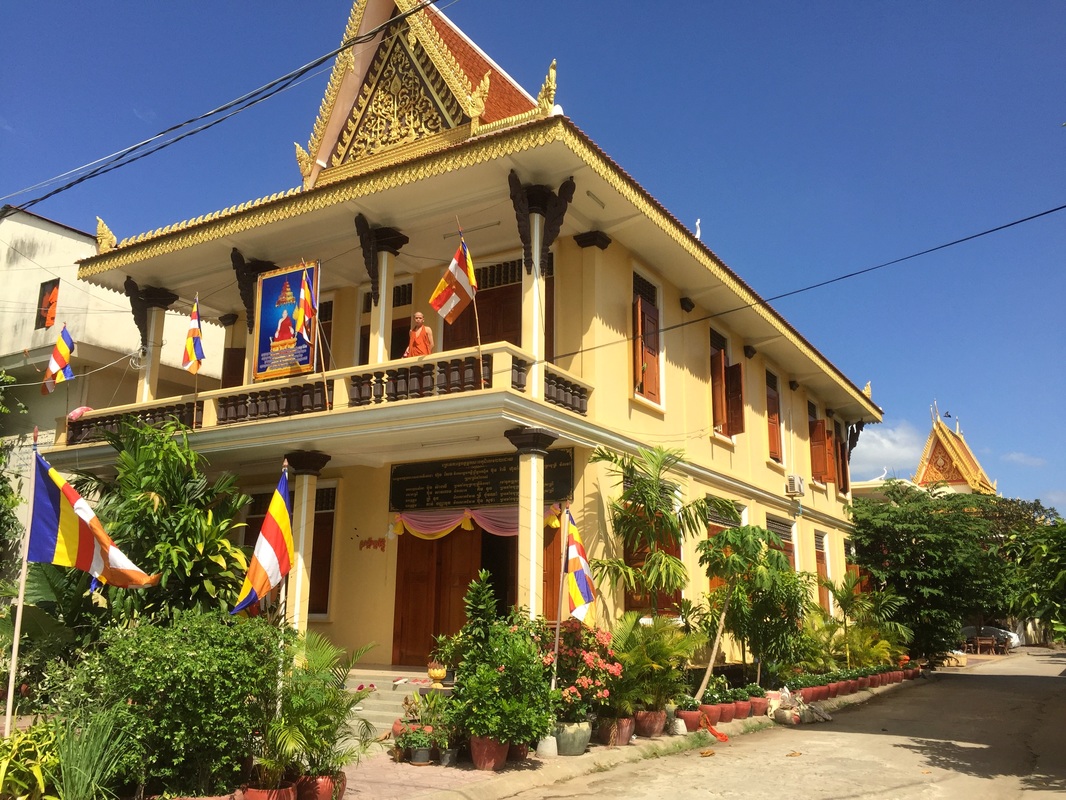
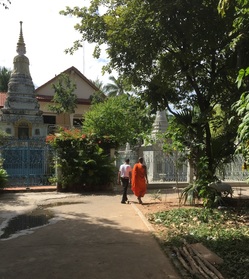
 RSS Feed
RSS Feed